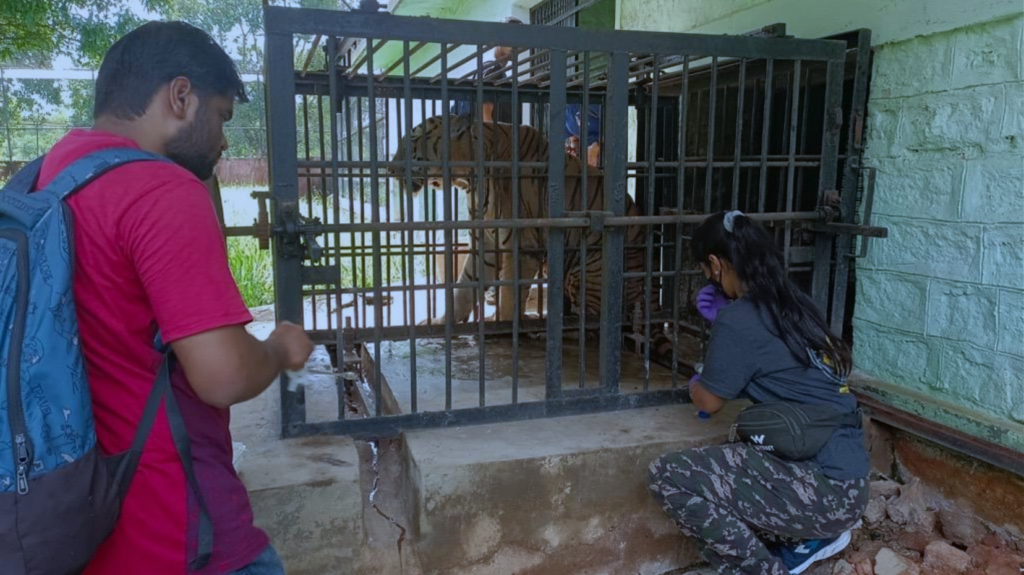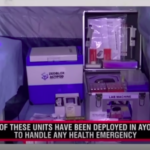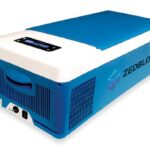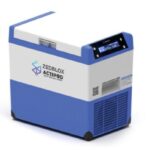Wildlife conservation and health management have taken a significant leap forward with research focusing on DNA/RNA molecular stages and gut microbiota analysis. This case study delves into the innovative approach taken by researchers, showcased through collaboration between a renowned research institution LACONES and technology-driven solutions like ZedBlox ActiPod.
Objectives:
Early Disease Detection:
Employ molecular testing to detect the sequence of diseases even before symptoms manifest, allowing for proactive interventions.
Microbiota Profiling:
Understand the complex ecosystem of gut microbiota, identifying beneficial and harmful microorganisms for improved health management.
Data Collaboration: Establish a collaborative network with zoos and rescue centers for data collection, sharing insights for effective wildlife health management.
Implementation:
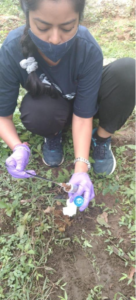
Logistics:
A key challenge in conducting this study was to ensure pristineness of the samples to prevent contamination from foreign microorganisms, uncontrolled growth and/or damage due to environmental factors while transporting them from the point of collection to the research lab which is a few hours travel distance away.
Conventional passive cold boxes are susceptible to temperature variations while maintaining sub-zero temperatures required to arrest the growth of the microorganisms. We chose to employ ZedBlox ActiPod which is an innovative cold box that uses battery power to maintain sub-zero temperatures consistently. This transformative technology also offers real-time monitoring of temperature during transportation ensuring the sanctity and confidence of the samples for the research study.
DNA/RNA Molecular Analysis:
Researchers extract fecal samples to get DNA/RNA samples from diverse wildlife species, focusing on those with limited communication capabilities such as tigers, leopards, and wolves. Molecular testing techniques enabled the detection of disease sequences before clinical symptoms emerged.
Gut Microbiota Profiling:
Fecal samples are collected within a 15-minute window after defecation to obtain a comprehensive history of gut microorganisms. Advanced analysis revealed insights into the interplay of microorganisms, aiding in identifying health trends and imbalances.
Collaborative Data Collection:
The research engaged with over 18 zoos and rescue centers across India, creating a robust database. Careful observation and data collection allowed for informed conclusions about animal health based on interventions and care practices.
Results:
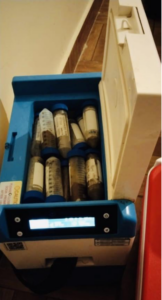
Early Disease Detection:
By identifying disease sequences in advance, timely interventions were made, significantly enhancing animal well-being. This proactive approach proved crucial in disease prevention and management.
Microbiota Insights:
Profound insights into gut microbiota aided in understanding animal health at a holistic level. Identification of beneficial and harmful microorganisms facilitated tailored interventions and dietary adjustments.
Collaborative Impact: The collaborative network established with zoos and rescue centers fostered knowledge sharing. Effective care practices were propagated, leading to improved animal health across various institutions.
Conclusion:
The case study showcases the transformative potential of molecular analysis and microbiota profiling in wildlife health management. The proactive approach to disease detection and the deep understanding of gut microbiota dynamics contribute to a paradigm shift in caring for animals in captivity. Collaborative efforts among institutions amplify the impact, ensuring a healthier future for diverse wildlife species in zoos and rescue centers. The fusion of technology, research, and collaboration serves wildlife conservation and improved health management practices.

